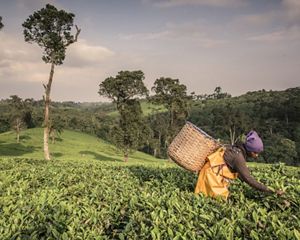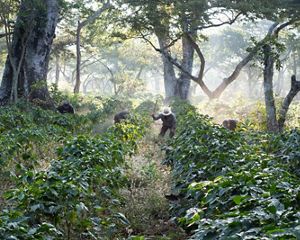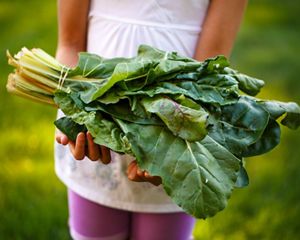
Wheat threshing NW India Aerial view of wheat threshing at Rajesh Kumar’s farm in Karnal region, Haryana. Rajesh is a fourth generation farmer and has been farming for 20 years. He works on 70 acre land collectively owned by his three brothers and himself. © Smita Sharma
Join us in building a sustainable future
PRANA is one of several Foodscapes driving positive, on the ground food systems change.
The Indo-Gangetic plains of India are extremely fertile and provide food security to around 40 percent of the country’s population. While the Northwest region of India is the highest producer of paddy (rice) and wheat, essential food crops for the people of India, some current farming practices are causing harm to the environment and threatening the suitability of farming in the region. The Nature Conservancy in India is working with farmers to address these issues through collaborative solutions, aiming to build long-term adaptable farming practices for a climate-resilient future.
The PRANA Initiative
Launched in 2021, the Promoting Regenerative and No-burn Agriculture (PRANA) Foodscape tackles environmental challenges by reducing crop residue burning and promoting sustainable agricultural practices. Through a combination of behavioral interventions, farmer training and policy support, PRANA is driving lasting change in Northwest India and creating a more sustainable food system.
What is a Foodscape?
A foodscape is a specific area of food production, defined by the combination of biophysical characteristics and management attributes in that area. Simply put, a foodscape maps a portion of the global food system, categorized by ecological and human influence.
Our Goals
How PRANA is transforming Northwest India’s agricultural landscape
-
220,000
Farmers Adopting No-Burn
-
500,000
Area Under No-Burn (hectares)
-
500B
Water Saving Ensured (liters)
-
6M
C02e Eliminated (tonnes)
Tackling Critical Issues in Agriculture
Rising Greenhouse Gas Emissions from Agriculture
Rice paddies are significant sources of methane emissions, while burning crop residues leads to the release of harmful gases including carbon dioxide, sulphur dioxide, carbon monoxide and nitrous oxide. These emissions have severe consequences, affecting soil fertility, human health and contributing to global warming.
Groundwater Protection
Agriculture is the largest consumer of Punjab's groundwater, with alarming rates of depletion predicted to exhaust the resource by 2039. To mitigate this issue, the team recommends implementing measures to regulate groundwater extraction, which will be integrated into the project's implementation framework as we move forward with the next phase of Foodscapes in Punjab.
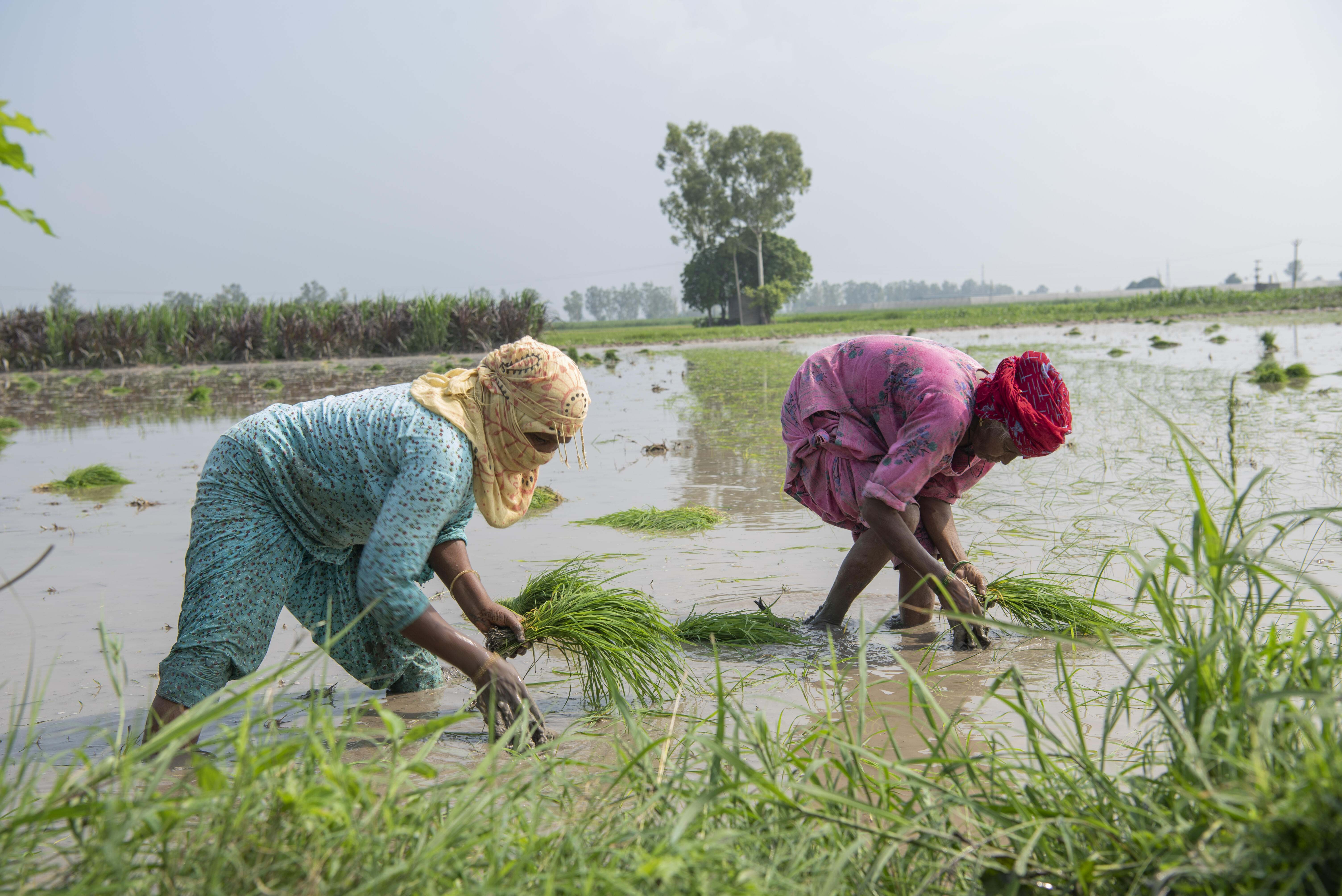

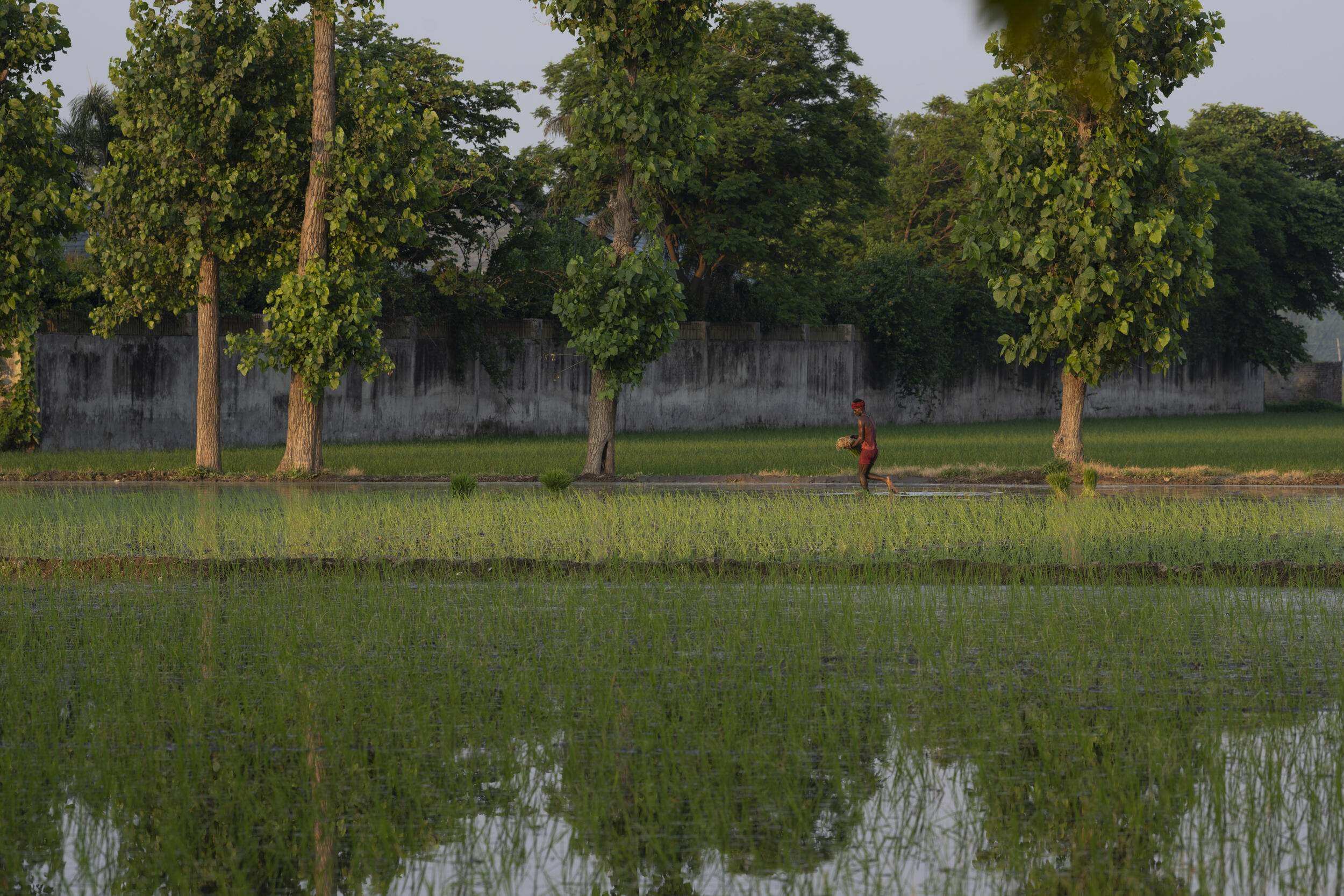
Innovative Solutions for Crop Residue Management
Biochar
To address crop residue burning and declining soil health, PRANA has launched a Biochar pilot project. Biochar, a carbonized biomass from sustainable sources, is added to soil to boost agricultural productivity and environmental sustainability. It enhances soil's water and nutrient retention, promoting plant growth. PRANA’s Biochar pilot aims to produce high-quality biochar, improving soil health and offering a solution for residue burning in Punjab. PRANA and its partners have successfully produced 100 tons of biochar, marking an exciting and innovative phase in crop residue management.
AgResults Model
The AgResults Model is a groundbreaking approach to agricultural development and impact evaluation. This pay-for-results model incentivizes the private sector, researchers and other stakeholders to create and scale solutions for critical agricultural challenges. Service providers of agricultural machinery are key players in addressing crop residue burning and promoting Direct Seeded Rice (DSR). By targeting these service providers through the AgResults Model, we can sustainably tackle residue burning and encourage water-saving techniques like DSR. This model aims to foster Agri-entrepreneurship among service providers and build sustainable, scalable business models.
Quote: Tarsem Singh
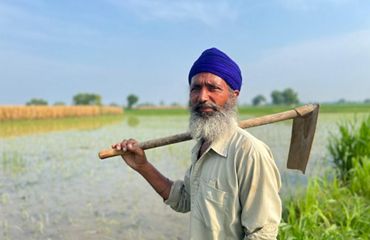
With PRANA’s support, I adopted water-saving methods like Direct Seeding of Rice and Alternate Wetting and Drying. It transformed my farm and taught me that farming is about more than yields—it's about restoring our land and preserving Punjab’s groundwater.
A Healthier Environment for All
By reducing residue burning and promoting regenerative practices, PRANA is achieving tangible environmental benefits:
Significant reductions in air pollution and greenhouse gas emissions.
Improved soil health through the incorporation of crop residue as mulch.
Conservation of groundwater resources, crucial for Punjab’s long-term agricultural sustainability.
Quote: Surinder Singh
Policy Support
Drawing from three years of program implementation in Punjab, a new policy brief series highlights findings from PRANA’s survey on crop residue management trends and impacts, as well as practical solutions for addressing Punjab’s energy-water-agriculture nexus.
Sharing Insights from PRANA
-
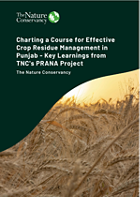 Charting a Course for Effective Crop Residue Management in Punjab
Charting a Course for Effective Crop Residue Management in PunjabA policy brief from TNC's PRANA project on how they charted a course for effective crop residue management in Punjab, India.
Download -
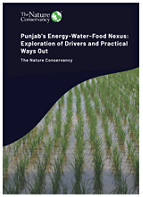 Punjab's Energy-Water-Food Nexus
Punjab's Energy-Water-Food NexusA policy brief from TNC's PRANA project exploring the drivers and practical ways out of Punjab's energy-water-food nexus.
Download
Stay in the Loop.
Get conservation stories, news and local opportunities from where you live.




